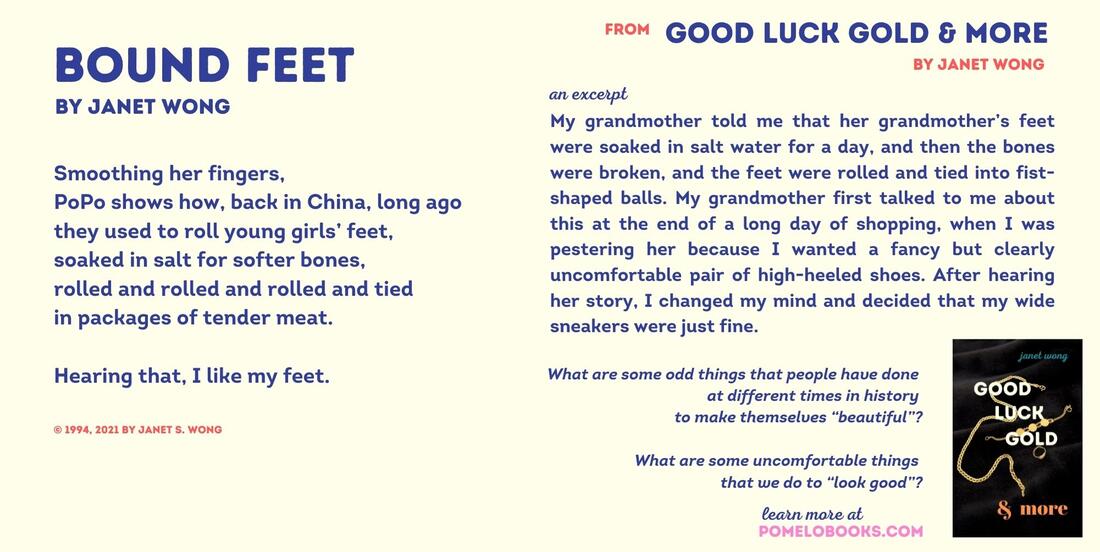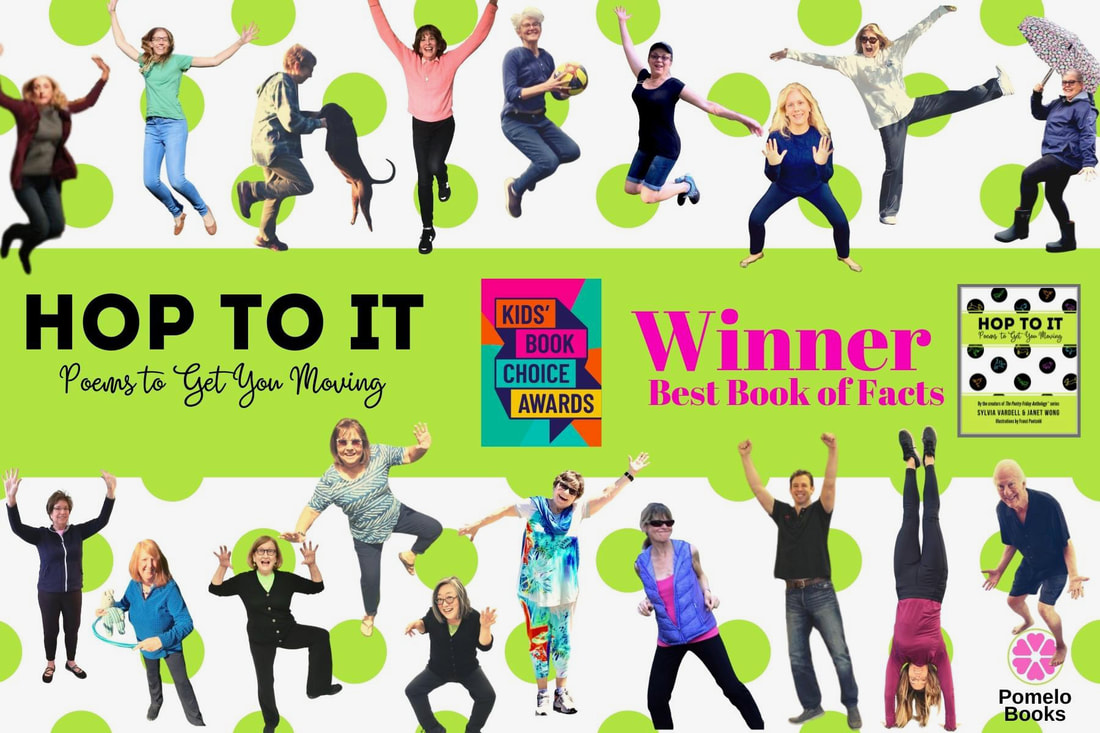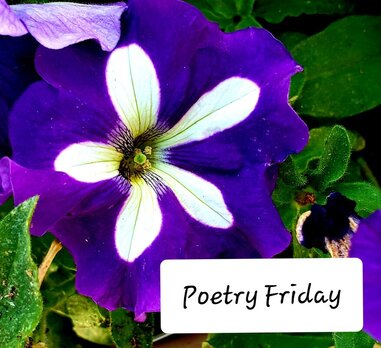 Be sure to head to Matt at Radio, Rhythm & Rhyme. He is hosting the Poetry Friday Round Up and celebrating the arrival of Friends & Anemones: Ocean Poems for Children, created by members of The Writer’s Loft in Sherborn, Massachusetts. Do you like challenges? The Poetry Sisters have an invitation: You’re invited to join our challenge for the month of November! We’re writing an Ode to Autumn. An ode is a lyrical poem, a way of marking an occasion with a song. Whether you choose an irregular ode with no set pattern or rhyme, or the ten-line, three-to-five stanza famed by Homer himself, we hope you’ll join us in singing in the season of leaf-fall and pie, and sharing on November 26th in a blog post and/or on social media with the tag #PoetryPals. The #inklings offer this challenge: “Write a poem that includes the idea of percentage or percent. Percentages are all around us in recipes, prices, assessments, statistics. Include the idea of percentage in your poem in some way.” Friends & Anemones: Ocean Poems for Children, created by members of The Writer’s Loft in Sherborn, Massachusetts, was officially published November 8, 2020! 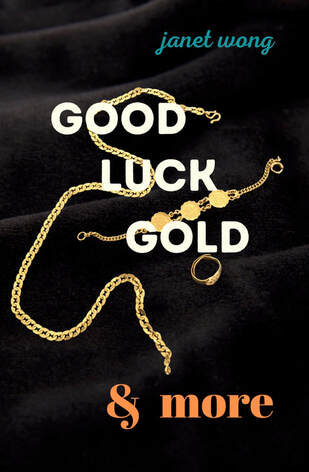 I've been reading GOOD LUCK GOLD and MORE by Janet Wong. This is her re-issue and expanded collection of poems from her DEBUT book in 1994. I have the original book signed by her. I highly recommend this book be in every elementary and middle school for sure. These poems are timeless. I remember reading them twenty-seven years ago and being astonished by the treatment given to the author and now reading them they still give me pause at how some humans treat others. The “story behind the story” or “story after the story” additions are powerful and provide such a good bridge to talk to students about racism. JRM: GOOD LUCK GOLD was your debut book for kids in 1994. What was it like to take a class from Myra Cohn Livingston? JW: Myra Cohn Livingston mentored a whole generation of children’s poets in her Master Class in Poetry. This was a UCLA Extension class that was offered only to those Beginning Class alums who were invited by Myra; there was seldom an opening. As a result, Myra’s Beginning Class was full of students who had taken it five or more times and were not beginners at all: Monica Gunning, Kristine O’Connell George, Joan Bransfield Graham, and more. Some people who took Myra’s classes were published picture book writers who wanted to know more about poetic techniques: Alice Schertle, April Halprin Wayland, Ruth Bornstein, and Tony Johnston, for example. Earlier this year I was invited by Julie Hedlund to speak with the 12x12 group, and I felt like I was channeling Myra with my emphasis on assonance, consonance, and internal rhyme. Myra died in 1996, but you can still learn from her book Poem-Making: Ways to Begin Writing Poetry (now out of print, but you can find it at a library). JRM: And you can also find it at Thrift Books. GOOD LUCK GOLD was written twenty-seven years ago. How has life experiences informed you when writing the new content? JW: Five years ago, I thought that the discussions about anti-Asian racism weren’t really needed any longer. I was content to let the original GOOD LUCK GOLD rest in peace. But the recent surge in anti-Asian racism has scared me. I’m afraid for my 86-year-old father, worried that some crazy racist will attack him on the street. I’m even afraid for myself sometimes; I’ll think twice before walking somewhere alone. Because of all this, I felt an even greater urgency when writing the prose pieces about racism, an immediate need to connect with readers on a basic human level. JRM: I could see this book being a mentor text for students to write their own poems about their parents and grandparents, food, and culture. Have you worked with students to create their own collections? JW: In 2013 I worked with some students from Chadwick School in California to create anthologies—a 6th grade anthology and a 3rd grade anthology where every student was involved somehow: writing, illustrating, editing, copyediting, typing, doing technical work, and even marketing the books that they created, selling them on Amazon to raise funds for charity. I think those students really enjoyed having a “real world” publishing project. If schools want to embark on this kind of project for students in a certain grade or in a publishing club, I know that there are several poets who could provide guidance (for a fee). Jone, YOU would be an ideal poet to help schools make their own books. (Parent volunteers: raise some funds and hire Jone!) JRM: Was there one poem that was more challenging to write? JW: The poem “Bound Feet” went through many, many drafts. The prose piece, too. There is so much that can be said about the complicated history of foot-binding. After trying to write a narrative poem, I finally decided to keep the poem close to my own personal experience, writing about how I felt as a child when my grandmother first told me about her grandmother’s bound feet. When a poet—or any writer, even a writer of nonfiction for adults—is having difficulty with a topic, I think one good approach is to pretend that you are a child again and write from the child’s point of view. JRM: What would you like readers of this interview to know about #StopAsianHate and bystander training?
JW: The Hollaback! bystander training session is free and takes just one hour of your time; you can sign up in a minute at ihollaback.org. There are sessions focused on anti-Asian racism and also on different communities and issues. My main takeaway: as a bystander, we sometimes worry about getting involved because we know that we can’t fix the situation alone. And maybe we’re scared. But you don’t have to resolve the problem all by yourself. Just do something to get things started. You can distract. You can document. You can delay until more help arrives. Be the first bystander to step up, and others will follow. JRM: What is your next project? JW: Sylvia Vardell and I plan to continue with our Anthologies 101 and 201 courses next year, working on books similar to the THINGS WE DO book of ekphrastic poems with your fun poem "ZOOM,” Jone. People can learn more about these workshops at our website here. Next up for the January/February 2022 Anthologies 201 group is THINGS WE EAT, a topic near and dear to my heart (and stomach). One of the photos that Sylvia and I have selected features a Korean restaurant scene and the word "kimchi." I am super excited for that book—you could even say I’m hungry for it! For fun: Sylvia's and Janet's next project is THINGS WE EAT. What would be a food for the letter X? Comment below. Janet is generously sending 6 books to people who comment (3 from last week and 3 this week) I will announce the winners next FRIDAY, NOVEMBER 19. Thank you, Janet for providing readers with great back story about GOOD LUCK GOLD and More. Looking forward to the next books that you write.
Gail Aldous
11/12/2021 01:22:54 am
Jone, what a great interview with Janet Wong! I loved reading Myra Cohn Livingston's Poem-Making: Ways to Begin Writing Poetry. I always wanted to buy it because it was so helpful to my own poetry and to the students I taught poetry to. In college I remember reading about binding a young girl's feet. I remember feeling the pain of her broken toes! Thank you for including The Poetry Sister's challenge and the #inklings challenge.
Janet Wong
11/15/2021 08:51:35 am
Gail: great to find a fellow fan of Myra's POEM-MAKING! And I love zeppole but . . . it's not the Z word that we chose. (Another Italian word, though; I'll bet you'd be able to guess before I could type the word!)
Jone MacCulloch
11/15/2021 05:37:46 pm
Perhaps, ziti?
Gail Aldous
11/16/2021 08:42:03 pm
I thought of zucchini, too, but went with zeppole because it tastes way better then zucchini. LOL. By the way, I looked back at the interview and it makes sense that the poets you mentioned took a class from Myra. They are all great poets; Tony Johnston's work is on my wow level. I apologize for not mentioning I love your poem Bound Feet and your prose piece. I can feel see your images and feel your feelings in both. Your repetition in "rolled and rolled and rolled" gives the reader that image and feeling of her won feet being rolled and rolled and rolled. Then, I love how graphic the image of "tied in packages of tender meat" ouch. Great ending with you feeling I like my feet just the way they are, happy you don't have to roll your feet, and the continuation of the rhyme. I often go back to think how I felt when I was a child to get into that POV; great advice. Thank you for sharing.
Gail Aldous
11/16/2021 09:00:07 pm
Jone, I didn't even think of ziti (LOL) even though I'm 50% Italian. I was taught at a young age from my 100% Italian grandmother and 100% Italian grandfather how to make homemade cavatelli; I also taught my girls how to make homemade cavatelli, but I added ricotta cheese to the dough and we created a family tradition.
Jone MacCulloch
11/15/2021 05:38:44 pm
I am looking forward to getting my Livingston Poem-making copy. 11/12/2021 02:58:15 am
What a wonderful interview, Jone! Janet's advice regarding writing about difficult topics is a GEM-- stay in the voice/perspective of the child! What a challenge to write about the complex topic of foot binding... yet Janet makes it relevant for today's readers in the question: What are some uncomfortable things we do to "look good?" Brilliant! Thank you, Jone and Janet, for this conversation and these insights.
Janet Wong
11/15/2021 08:59:24 am
Thank you, Mary, for your compliment—and yes, I do try to make my writing relatable in some way to young readers. The problem is that we don't know who our readers will be, right? In my early books, I used to try to be extra subtle and ambiguous in poems (the way poets who write for adults often are), because I thought it was fun to be clever. Margaret McElderry told me often that being CLEAR was the most important thing; communicating with the reader was more important than simply expressing my thoughts. I probably need to remind myself of that more often!
Jone MacCulloch
11/15/2021 05:40:28 pm
Thanks for stopping by, Mary. Janet, I like that tip from Margaret McElderry, to be clear n your writing.
Matt Forrest Esenwine
11/12/2021 07:17:38 am
Thank you both for this enlightening interview - it's always interesting to learn about the background of writers and their process. And congratulations again to Janet!
Janet Wong
11/15/2021 09:00:09 am
Thank you, Matt! It's exciting to see your body of work growing and GROWING!!
Matt Forrest Esenwine
11/15/2021 09:32:44 am
Thank you, Janet - just trying to work as hard as I can!
Jone MacCulloch
11/15/2021 05:40:52 pm
Thanks for stopping by, Matt.
Thank you for this great interview! I really enjoyed hearing the history and upcoming projects. Very great stuff!
Janet Wong
11/15/2021 09:03:20 am
I did think of xigua, Tim . . . but not the others! Ximenia would be great (and I love the nicknames for it), but we picked a different X food. Hint: we confirmed that it would be a good choice with an expert in that ancient language . . .
Jone MacCulloch
11/15/2021 05:41:59 pm
Tim, ooh I like Xigua. Thank you for stopping by.
Mary Lee
11/13/2021 05:52:55 am
I've got a little side gig going as Kitchen Assistant for Sur la Table cooking classes a couple times a week. So my X poem would be about learning from the cooking eXperts! (Next week, I get to help with a class on making croissants!!!)
Janet Wong
11/15/2021 09:13:57 am
I just bought some things from Sur la Table last month—it's such a great store. I'll bet your cooking classes are the best. You are a natural teacher—definitely an eXpert!!
Jone MacCulloch
11/15/2021 05:42:59 pm
How fun to be a Kitchen Assistant for Sur La Table. Thank you for stopping by. 11/14/2021 06:31:53 am
Thanks for this second part of the interview, Jone. It is hard to read of Janet's own worries about the Asian hate attacks today. Thanks for that link about the bystander training, Janet, and sharing some of this new book, too. I have "Poem Making" & it is a treasure!
Janet Wong
11/15/2021 09:15:40 am
Thanks for your comments, Linda! I usually don't talk about anti-Asian racism because I usually don't like to talk about anything negative. But I think that talking about it (and writing about it) helps other people, especially kids, who find themselves in a similar situation.
Jone MacCulloch
11/15/2021 05:44:34 pm
I am glad you chose to write about it , Janet. I agree with you, Linda. It's hard to hear that people you know have had experience with hate. 11/15/2021 08:50:43 pm
Wonderful interview with Janet, Jone, and the comments are intriguing too! 11/17/2021 03:11:29 pm
Jone, this was an outstanding interview blog post with Janet Wong. Janet is always astute, creative, and willing to take on a challenge. Janet, thank you for the advise when writing becomes challenging: "pretend that you are a child again and write from the child’s point of view." I have always been fascinated by binding feet and was in awe of how you tackled this topic along with the slogan, Stop Asian Hate. Hate is such an infectious emotion that spreads rapidly. Our world needs to recognize hate and let it go. Great blog today! Sorry I got here so late. Comments are closed.
|
AuthorAll photos and poems in these blog posts are copyrighted to Jone Rush MacCulloch 2006- Present. Please do not copy, reprint or reproduce without written permission from me. Categories
All
Archives
July 2024
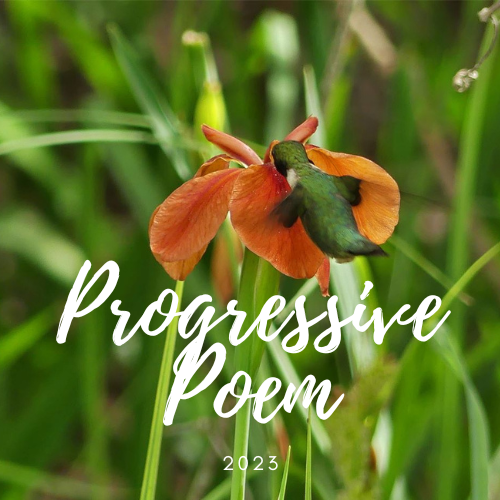
2023 Progressive Poem
April 1 Mary Lee Hahn, Another Year of Reading April 2 Heidi Mordhorst, My Juicy Little Universe April 3 Tabatha, The Opposite of Indifference April 4 Buffy Silverman April 5 Rose Cappelli, Imagine the Possibilities April 6 Donna Smith, Mainely Write April 7 Margaret Simon, Reflections on the Teche April 8 Leigh Anne, A Day in the Life April 9 Linda Mitchell, A Word Edgewise April 10 Denise Krebs, Dare to Care April 11 Emma Roller, Penguins and Poems April 12 Dave Roller, Leap Of Dave April 13 Irene Latham Live You Poem April 14 Janice Scully, Salt City Verse April 15 Jone Rush MacCulloch April 16 Linda Baie, TeacherDance April 17 Carol Varsalona, Beyond Literacy Link April 18 Marcie Atkins April 19 Carol Labuzzetta at The Apples in My Orchard April 20 Cathy Hutter, Poeturescapes April 21 Sarah Grace Tuttle, Sarah Grace Tuttle’s Blog, April 22 Marilyn Garcia April 23 Catherine, Reading to the Core April 24 Janet Fagal, hosted by Tabatha, The Opposite of Indifference April 25 Ruth, There is no Such Thing as a God-Forsaken Town April 26 Patricia J. Franz, Reverie April 27 Theresa Gaughan, Theresa’s Teaching Tidbits April 28 Karin Fisher-Golton, Still in Awe Blog April 29 Karen Eastlund, Karen’s Got a Blog April 30 Michelle Kogan Illustration, Painting, and Writing |
